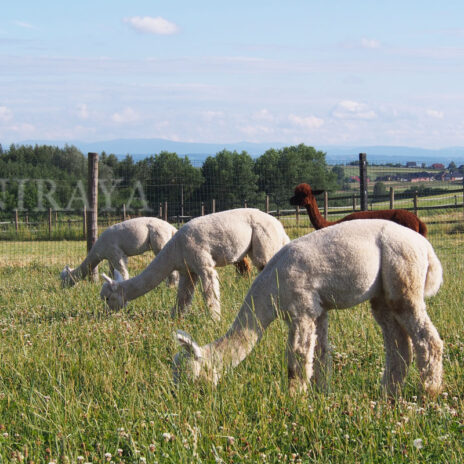This was possible because in 2003–2008 the percentage of herds recognized as infected with Mycobacterium bovis was below 0.1%, and the conditions for the identification of each animal and its post-mortem examination were met.
According to reports, there are countries in Europe that still have programs to free their herds from bovine tuberculosis. These are: Great Britain, Ireland, Spain and Portugal.
We have been reporting on the increase in animal tuberculosis cases in Great Britain for years.
A map showing the number of animal diseases in Great Britain and our recommendations can be found on our website (published on 18/10/2016) http://pzha.pl/…/gruzlica-u-wielbladowatych-w-wielkiej-bryt…
We have also written about the low effectiveness of intravital diagnostic tests for tuberculosis, especially the tuberculin test.
When exporting animals, only a tuberculin test is required.
Currently, antigen tests are available with a sensitivity of up to 70%; there are no tests that are more likely to confirm the presence or absence of tuberculosis in living animals.
Unfortunately, there are people for whom profit has overshadowed the welfare of animals and people.
Now, when the situation has been dealt with by district doctors and PIWet in Puławy, the dealers and their assistants are trying to whitewash themselves and hide behind alleged ignorance.
In connection with this, vile nonsense is being spread that it is easier to catch this disease from wild animals or from visitors from abroad.
We know that all the examined cases of tuberculosis in alpacas in Poland had the British strain and were purchased from two dealers importing these alpacas from Great Britain.
The import of animals from Great Britain is carried out in the worst possible way in terms of epidemiological considerations as well as animal welfare. Namely, from what we know, on the islands, animals are mainly bought by one person. This place is located in an area with the highest risk of tuberculosis.Animals purchased from different farms are kept in one building. Then they go to Poland and here the animals are also mixed together, stressed (by new company, new place and travel) and kept together all the time. In such conditions, any disease has wide open gates to infect.
Tuberculosis is a disease that develops especially when an animal has a lowered immunity, and treating animals in the manner described above contributes to this.
It is enough to have one sick animal in such a group and the entire herd can become infected. One sick animal is also enough for the people handling the animals to fall ill with tuberculosis.
Pulmonary tuberculosis caused by the bovine strain often has a miliary form, which is very dangerous for children!
According to information reaching us, one of the dealers is already banned from selling alpacas.
Now the traders and their assistants pretend that they did not know anything before!
The information we provided was treated as untrue and now it appears as revealed truth!
Several articles on tuberculosis written by specialists in this field will appear soon.
PZHA is in constant contact with experts from Poland and Europe and we are still deepening our knowledge on this highly contagious zoonosis that is tuberculosis!
Our recommendations remain the same!
All our animals are and will be subject to complete isolation from animals that came to Poland from Great Britain.
Animals originating from these areas are still not registered by the PZHA, we absolutely do not exhibit at any exhibitions where English animals appear.
Our recommendations are consistent with those recommended by other European alpaca breeding associations.
Our farms include animals from Chile, Germany, Austria and Switzerland.
We would like to draw your attention to one more thing.
The second alpaca breeders’ association was founded based on animals originating from Great Britain at the time of the greatest epidemic of this disease, at a time when animals from areas affected by tuberculosis were at very ‘attractive’ prices.
Potential buyers are continually misled into believing that there is no tuberculosis problem in the British Isles and that what the PZHA is doing is only fighting competition.
The founders of the second association had one goal in mind – to create a counterweight to the PZHA which took and still takes the position that in the current situation we will not expose our animals to contact with animals from an uncertain source, animals that may be sick! That is why they have formed a second association with British Alpacas to facilitate further sales and imports of these animals.
Alpacas imported from Great Britain by traders do not come from reputable and tested farms, and are not subject to any quarantine!
We are very sorry that animals and their owners are being exposed to suffering.



